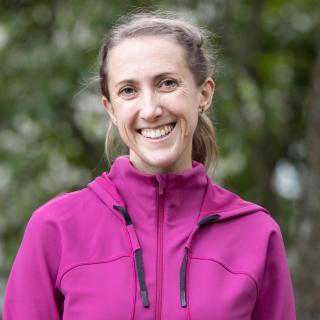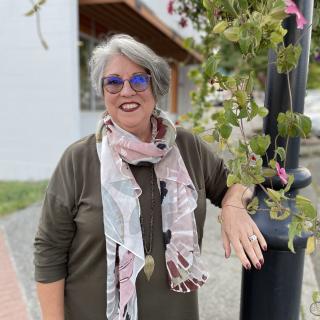VIU Master of Education in Educational Leadership student Miriam Juarez is researching how to incorporate more Maya culture and perspectives into the curriculum taught in her home country of Belize.
NANAIMO, BC: Inspired by the ways Vancouver Island University (VIU) has worked with First Nations to bring Indigenous ways of knowing and being into many of its programs and courses, international graduate student Miriam Juarez hopes to bring Maya culture into the classrooms in her home country of Belize.
Juarez, who is Maya, worked for six years in the first rural high school in the Toledo District in southern Belize, which is the least developed region in the country.
“I became more passionate about Maya students at the school and was able to see first-hand the struggles that the students experienced,” says Juarez. “The gaps between indigenous and non-indigenous students are wide in Belize, yet I was inspired by their relentless motivation to persevere and to approach the education system with an open mind.”
Juarez received a $2,000 VIU REACH award to help her pursue her research aimed at augmenting Belize school curricula to be more engaging for indigenous students. The REACH awards provide VIU undergraduate and graduate students with a stipend to enable them to conduct their own original research under the mentorship of a faculty member.
“I believe the voices of the Maya culture have been neglected in the mainstream education system,” she explains.
While pursuing her Master of Education in Educational Leadership through VIU, Juarez spent six months in Belize conducting group interviews with elders, teachers, administrators and students about what they think should be included in the curriculum about Maya culture.
“I found it interesting that both indigenous and non-indigenous educators were saying that intercultural exchange is important,” says Juarez. “Learning one’s identity and being able to share that with other people is part of the whole indigenous educational process and it will help students to be more engaged because they will feel confident in sharing about their culture to others.”
A thematic analysis of the interviews and surveys Juarez collected showed six themes emerged from the data, but the one that stood out was that Mayan languages should be taught in schools whenever possible, and textbooks should include examples of Maya culture and ways of life.
Leah Taylor, a VIU Faculty of Education Instructor, who is supporting Juarez through completion of her thesis, says there are a lot of parallels between Juarez’s research findings and what is being discussed at VIU and in British Columbia.
“It is a global issue,” adds Taylor. “In a recent presentation of her research project at the 2019 VIU Masters of Education Research Conference, her passion and dedication to having Maya people represented was so strong it rippled around the room. Students from Vietnam and rural China found many correlations to their own educational experiences.”
Juarez intends to present her findings to the local educational community and the Education Ministry in Belize and make recommendations about how to broaden the curriculum in terms of integrating more Maya perspectives. She would also like to share her findings with other universities in Canada.
“As an indigenous woman I feel that sharing my story is important because that is how we learn in our culture,” says Juarez. “It would be a tremendous privilege if offered the opportunity to share that in other parts of Canada.”
Juarez will present her findings at the VIU CREATE Conference taking place April 9 – 11 at the Nanaimo Campus.
-30-
MEDIA CONTACT:
Annette Lucas, Communications Officer, Vancouver Island University
O: 250.741.2020 | C: 250.618.7296 | E: Communications@viu.ca




